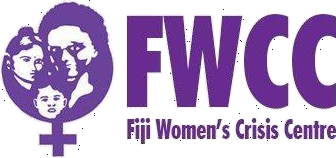That should deal with magistrates and judges around the region who refuse to imprison “breadwinners” for beating their wives, said Imrana Jalal, the Gender and Human Rights Advisor at the Pacific Regional Rights Resource Team (RRRT/SPC).
She made the comment today at the Fiji Women’s Crisis Centre’s Fifth Pacific Regional Meeting on Violence Against Women at the Naviti Resort in Fiji.
Jalal said changing bits and pieces of criminal and evidence codes, here and there, in the hope that it will be a legal solution to dealing with violence against women in the Pacific Islands, is an illusion.
Jalal said this type of piecemeal “band-aid therapy”, that a few Pacific Islands countries are choosing, is not enough.
“That is like putting a small band-aid plaster on a deeply flowing bloody wound,” she said. “Such a response cannot possibly stop the bleeding.”
Jalal said it was important that Pacific constitutions specifically recognise women’s rights in order that all other subordinate laws relating to women rights are able to fulfill the role they have.
The meeting heard that for this reason, comprehensive stand-alone legislative reforms combating all forms of violence against women are needed in countries that don’t have them.
In addition, family law codes all over the Pacific would need drastic changes to assist survivors of violence.
“Changing criminal legislation is not enough, family laws are also critical. An integrated approach is necessary. The same judge, magistrate or adjudicator ought to be able to make a number of court orders about a family in crisis, at the same time.
“Why should poor women run from one court to the next to get the variety of orders they need to help them and their children?” Jalal asked.
Even where ordinary criminal and civil legislation exist, it is often limited in scope and coverage, such as the definitions of rape that is limited to the use of force; reduction of sentences where the offender is “forgiven” because his family have conducted customary forgiveness ceremonies or paid compensation; immunity against prosecution in cases of marital rape; laws that allow discriminatory evidential rules to apply to women; and inadequate sentences for crimes of violence against women.
“The law can be a powerful and potent force of positive change,” says Jalal. “In the right hands the law can be a tool of change for the better.”
However, Jalal warned: “It is not enough to amend conventional or mainstream legislation, and train the implementers of that legal system, if the parallel customary law system remains untouched. This is especially so if the largest number of women are affected by the customary law system, rather than the conventional one. This is true in most of Melanesia, for example.”
Despite this, only one Pacific country, Vanuatu, has specific stand-alone legislation dealing with domestic violence, and only two have specific stand-alone legislation on sexual violence, PNG and the Republic of Marshall Islands.
Even so, obstacles still remain. “There continue to be lawmakers who refuse to acknowledge that violence against women is a serious problem and that new laws are needed as a just response. They continue to believe that violence against women is a private matter or that the culture sanctions it. There are the stubborn judges, magistrates and police officers who resolutely hang on to the old ways, and where new legislation still allows sufficient room for individual discretion to operate against women.”
Another issue is that while some good laws exist, they remain unused because there are no resources to implement them or insufficient human resources to make them work.
“No amount of good laws are worth the paper they are written on without training for the implementers, adequate budgets for implementation, inter-sectoral mechanisms and benchmark indicators for monitoring the effectiveness of legislation and so on. In Jalal’s view, the best implemented laws are those with a vigilant and watchful women’s movement closely monitoring their progress. Good law is only as good as the political will behind it,” said Jalal.
Gwen Phillips, newly recruited Senior Trainer at RRRT, and former High Court Judge from Fiji, told the meeting there were considerable challenges ahead and that courts would benefit from sustained gender training for all judicial officers.
Gina Houng Lee, Senior Trainer at RRRT said that RRRT was involved in a project in nine countries, with national government and NGO partners, which was dedicated to getting effective violence against women legislation passed.
